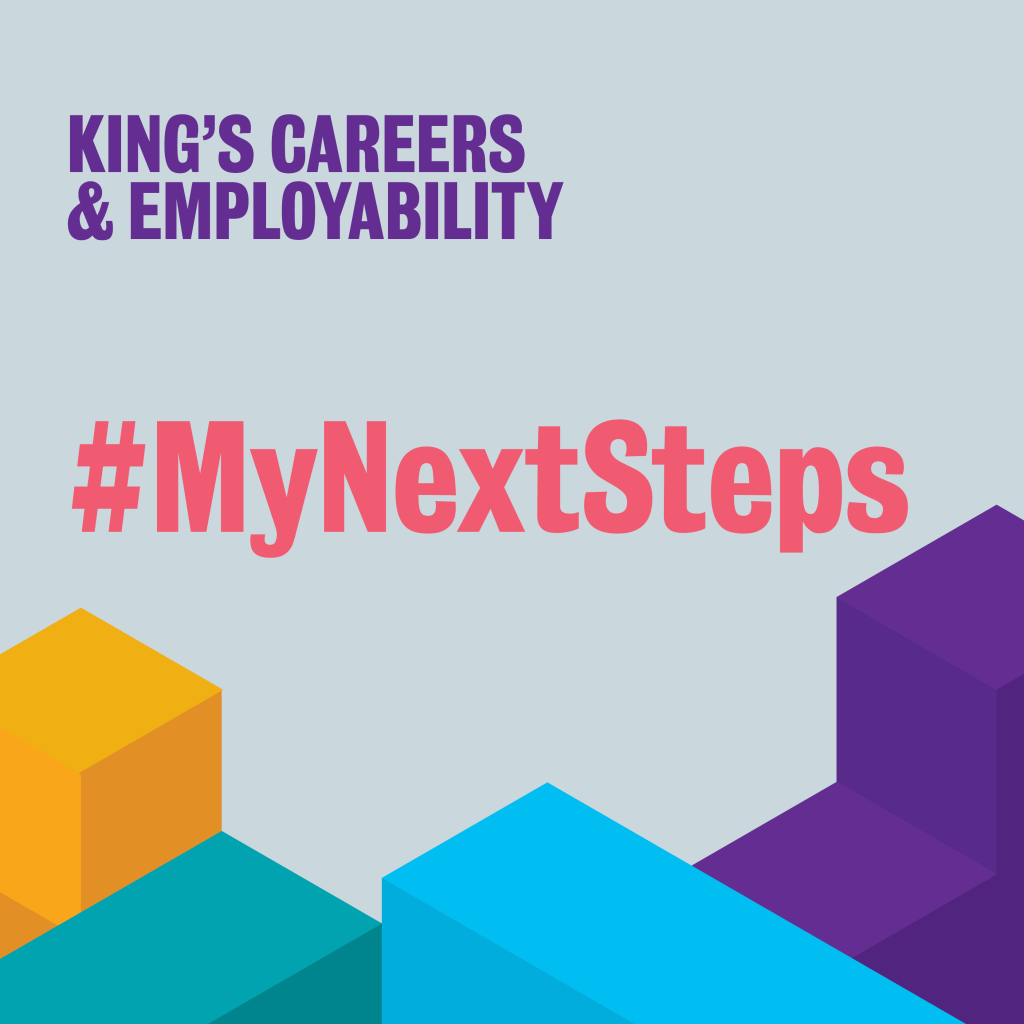We’ve all started to turn our heads to virtual alternatives to build our CV and employability – perhaps to keep up with career plan during studies, or perhaps even as an essential step towards graduate employment or further study plans. For this week’s #MyNextSteps career advice blog, Career Consultant Fiona Richardson talks about virtual work experience.

Virtual Work Experience: what is it and how it could work for you
Prior to the Covid-19 crisis, I was only vaguely aware of the concept of virtual work experience. Like the furlough and zoom meetings it was on my radar – but only just. I was perhaps a bit behind the curve because virtual internships were already becoming a thing, with countries such as India and the US taking a lead. Now we are playing catch up as the opportunity to gain work experience virtually seems like a fantastic opportunity and a salve to those who had envisaged themselves interning in offices this summer. So what is virtual work experience, what forms can it take and what other options might be out there?
Remote project work
We are hearing of a number of organizations such as EY, IBM and Clifford Chance who are honouring internship offers made for this summer by offering projects that can be delivered virtually. Students will work on projects remotely and present solutions back to the employer. The internship package may also include online training and mentoring and networking opportunities. A number of global internship providers are busy brokering international remote internships but beware, these come at a price.
There have always been a small number of students who have been successful in securing remote work experience sometimes in research and analysis, more commonly in tutoring and translation. We are seeing more and more organizations advertising home working opportunities on KCC. you can search these on King’s CareerConnect by filtering for location and choosing “working from home”. At the time of writing current opportunities include tutoring, social media operator, legal intern and analyst. But let’s be honest, these positions are few and far between and are inevitably going to be very competitive. So what are the other options?
Virtual experience
One of the main reasons for doing a summer internship is to explore the work of a particular sector to gain an understanding of whether it matches your strengths, skills and interests. Some employers are now offering online modules allowing you to participate in work simulations developing your skills and giving you an insight into the sector. Insidesherpa is a platform set up to deliver these experiences (read our blog post all about it here!). You only need to log on once and can then participate in work simulations offered by a range of organisations and sectors. Current big names in graduate recruitment offering this opportunity through their platform include KPMG, BCG and Linklaters. This is not an internship in the traditional sense, they are not paid and whilst you will get information on how the project should have been tackled you will not get that personal feedback.
At the moment the sectors predominantly offering these opportunities tend to be law, banking, finance, IT and consultancy. There is not much in the Public and Third Sectors. Their big advantage is that they are free and open to everyone, you can participate in as many as you wish and they will certainly provide useful material to reflect upon in applications and interviews.

We spoke to an InsideSherpa employer about how to best tackle your work experience tasks. Here’s what they said.
- Make sure to always think about the client in whatever task you’re doing (even if it involves liaising with teams internally). Put yourselves in their shoes and think what information they need to know.
- Be clear, concise and well structured in any of the written or voicemail tasks.
- Work through the modules in order – the programme has been designed to take you through a lifecycle of a deal.
- If you are unfamiliar with any terminology, words or phrases make sure to take the time to research them before starting the task.
- There is no time limit as to when you need to complete the virtual internship by, however, students have given feedback that they found it most beneficial to complete over the course of a couple of weeks.
And a final thought
Let’s be blunt here, the question “what did you do during the Coronavirus crisis” could become an interview staple. Employers will be looking for candidates who were able to adapt to the moment, change their plans, gauge how they could contribute and act. This period will be marked in your cv and recognised by employers as entirely unusual. The most valuable and accessible work experience you could gain at the moment might be working in a supermarket, working as a delivery driver or in a call centre or care home. Perhaps not quite what you had in mind, but in this climate, it also shows an employer you are adaptable, resilient and willing to get stuck in; and every employer values that.
Want to hear more? Have a question you’d like to ask us? Join our next #MyNextSteps virtual career advice event on Wednesday all about virtual work experience. Make sure you book yourself in via KCC!
